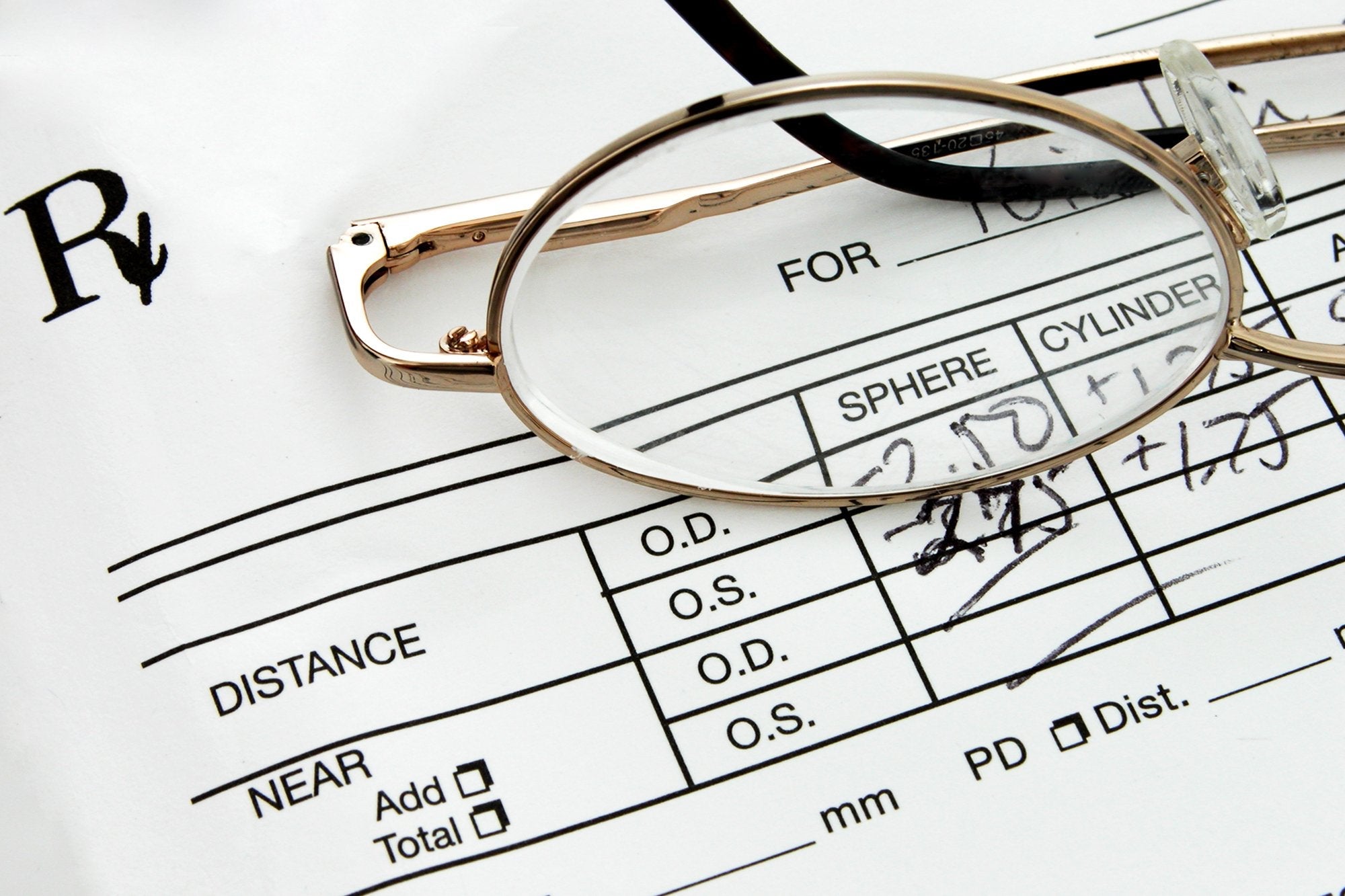Have you ever had any questions for your eye doctor during an eye exam? For most people, your eye exam is to get your updated glasses and contact lens prescription but more importantly, it’s to make sure that your eyes are healthy and free of anything that could endanger your vision. So, let’s dive in to answering some common questions.

1. What’s the deal with blue light from screens – should we be worried, and do blue-light blocking glasses really help?
Blue light is like the over caffeinated member of the light spectrum. It’s jittery and high energy and can strain your eyes leading to headaches, blurry vision and discomfort.
Blue light blocking glasses are the chamomile tea of the eyeglass world and helps you relieve eyestrain, headache and generally calms down your eyes.
Blue light is a wavelength of light that computer screen emits directly into your eyes. This makes you squint (like Clint Eastwood) and causes fatigue, increase light sensitivity and potential long term retinal damage. Blue light can also interfere with sleep quality as well.
Computer glasses have a lens coating that filters blue light and reduces eye strain, may help with retinal protection and improves sleep especially when worn in the evening.
Should you worry? Not really. Those with pre-existing retinal conditions should take precautions measures but the general population have little to worry about.

2. What are the most common signs of eye strain or fatigue that people should watch out for, especially with increased screen time.
I get this question a lot because we’re always in front of a screen whether it be for work, streaming or social media. So, whenever you’re in front of a screen that much, eye strain inevitably becomes an issue. Eye strain is like that uninvited guest at your screen-time party. At first, it’s a little annoying but not enough to do something about but after a while, it ramps up and drives you crazy with blurry vision, headaches, blurry vision, and irritated eyes. Since you find yourself concentrating on the screen, you lean forward and stretch your neck and shoulders leading to neck and shoulder pain.
Try the 20-20-20 rule – look away for 20 seconds off every 20 minutes – it’s like a mini – vacation for your eyes.
You see, our eyes evolved over millions of years so when your eyes were looking at the wholly mammoth or when we were looking far ahead at a sabretooth tiger that was about to eat us, our eyes were trained to look far away. Now, our eyes are very adaptable, but its default mode is looking far away.

3. How often should someone get an eye exam, and does that change with age or specific conditions like diabetes?
For most people, you can pop in for an eye exam every 1-2 years. Think of it as a physical for your eyes just so you can have peace of mind if there’s no prior history of anything. As you age, your chances of getting glaucoma, cataracts and macular degeneration go up. They’re like seeing a roach in your kitchen. If you don’t find them soon enough, it could be a big problem later.

4. Can you explain what the numbers in a prescription-like -2.50 or +1.75 – mean for vision?
Numbers can be broken down into two categories. The minus numbers are for correcting nearsightedness or not being able to see far away. It’s confusing since you must take it literally. You’re only able to see up close or near sight but not far away. On the opposite side of the spectrum are far sighted people who can see far away but not up close which is handled by plus powers. Don’t even get me started on what astigmatism is, it’s like the red headed stepchild of the optical world. It’s not far or near, it’s just odd shaped and funny looking like my nose.

5. What’s the difference between nearsightedness and farsightedness, and how do you test for them during an exam?
- Nearsightedness: you’re a champ at texting but the billboard’s a mystery.
- Farsightedness: the horizon is sharp, but your menu’s a guessing game.
We test for them during an eye exam since we have special equipment to know which one you are.

6. Are there any lifestyle changes or habits – like diet or sleep – that can noticeably improve eye health?
- Good Food: Your eyes are like foodies with picky tastes but overall, like good food. Your eyes like fresh vegetables packed with vitamins and minerals, fish oils and unsaturated fats. It’s not going to make you see better, but it supports retinal health and may slow eye diseases like Macular Degeneration.
- Sleep: Good quality sleep of 7-8 hours can also be very helpful since it helps reduce eye strain, dryness and puffy eyelids.
- Water: Drinking lots of water not only hydrates your entire body but helps to prevent dry eyes.
- Exercise: Physical activity helps with blood flow which supports overall eye health.
- Smoking: Not smoking decreases the risk for cataracts and macular degeneration.
- UV Protection: Sunglasses with high quality UV coatings can help prevent UV damage.

7. How do you check for serious conditions like glaucoma or macular degeneration, and what should people know about them?
Glaucoma is the Hamburglar of the eye world. It just sneaks up on you without you knowing it’s there. But if we hit it with a puff test or look inside your eye, the gig is up, and we have an inkling that the guy with the mask is lurking inside your eye.
Macular Degeneration messes with your center vision: we catch it with a grid or looking inside your eye.
People with Cataracts think the room is too dim when it’s not. We look directly at it with an eye microscope called a slit lamp and we can see if it’s there.

8. For someone who’s never worn glasses, what’s the first thing they might notice if their vision is starting to change?
People are telling you that you’re squinting like Clint Eastwood. Your eyes want to see clear and will do anything including feeling the urge to say, “Go ahead, make my day.” (Just kidding). Your eyes will feel heavy and strained which is a good time to see your nearest eye doctor instead of cosplaying Dirty Harry Callahan on Sudden Impact.

9. How do you determine if someone needs glasses versus contact lenses versus something like LASIK?
It’s simple, get an eye exam and leave it up to the professionals. Your eye doctor is the guru of all things in the eye world. He/She will lead you to the light, I mean clear vision. What vehicle you take to lead you to clear vision whether it is glasses, contacts and/or LASIK will be determined at that time.

10. What’s one myth about eye care or vision that you wish more people understood?
Sitting too close to the TV will ruin your eyes. My mom use to tell me that. It’s like thinking your eyes are like rubber bands and if you stretch it too much it will break and so will your eyes. Your eyes have focusing muscles that work to see whatever you’re looking at clearly and if you over task it too much, it will just cause eye strain and whatever you’re seeing will just blur out – that’s it. No blindness, no white cane, no handicap sticker in your car.
Looking for Reading Glasses?





